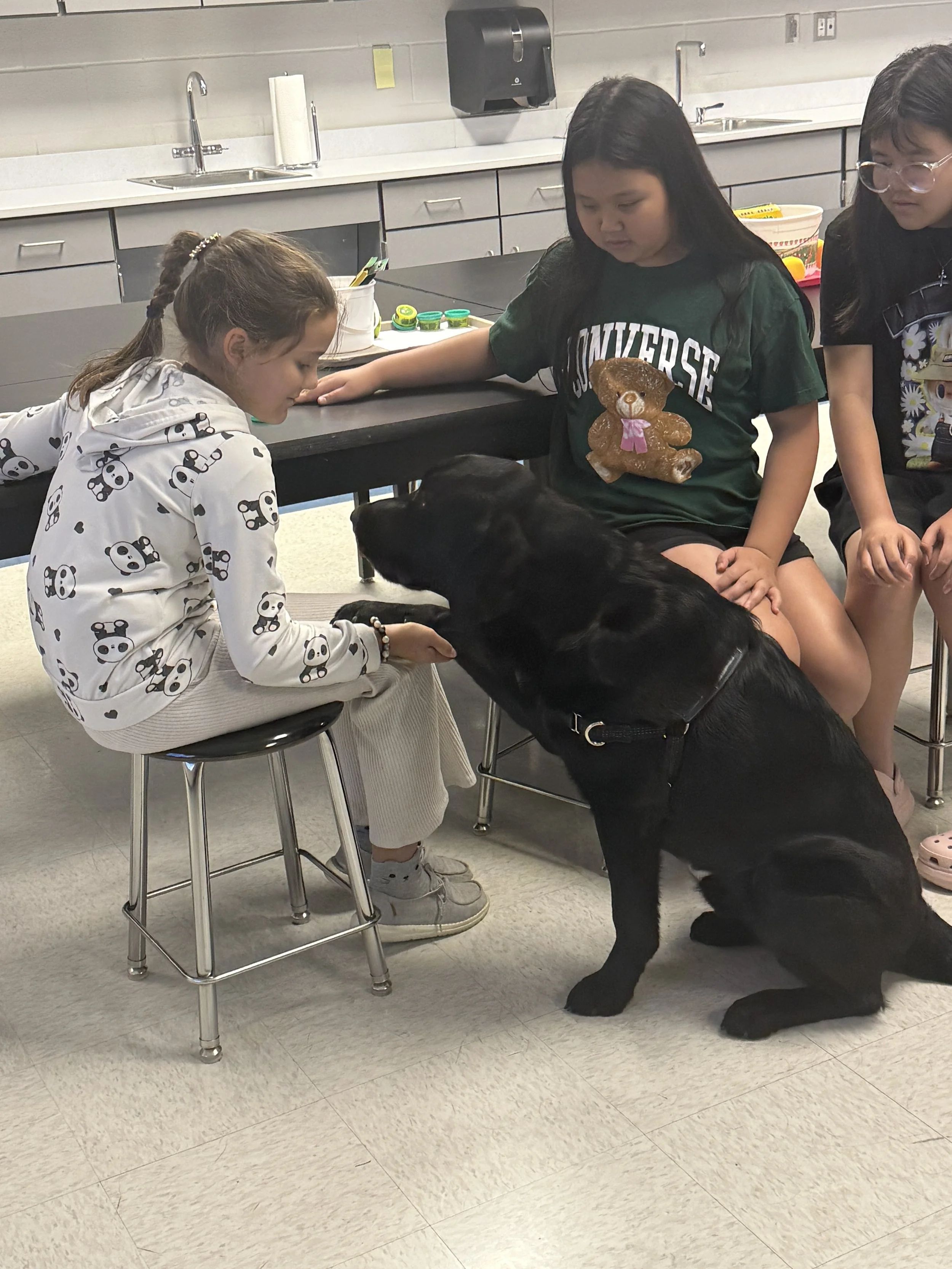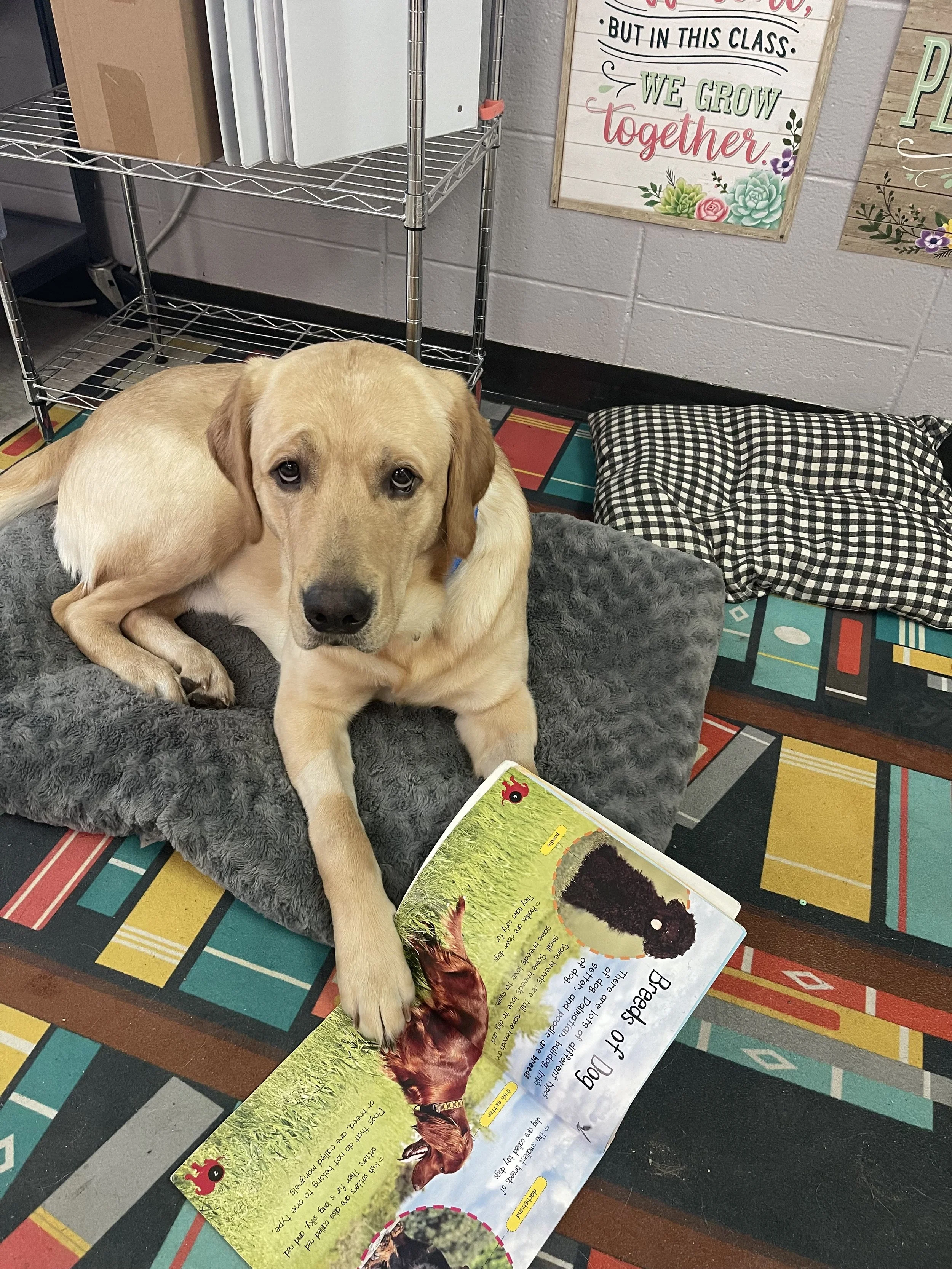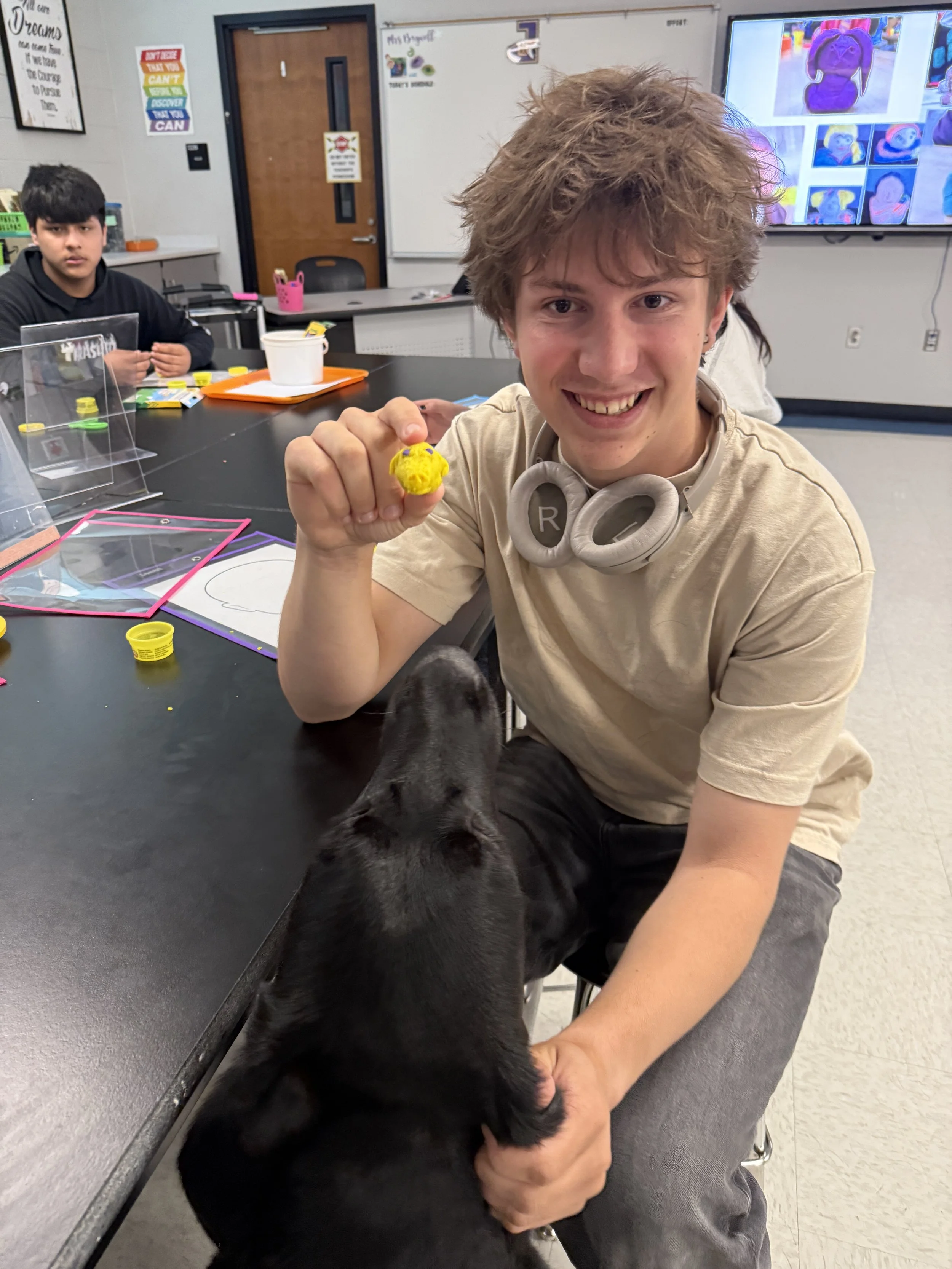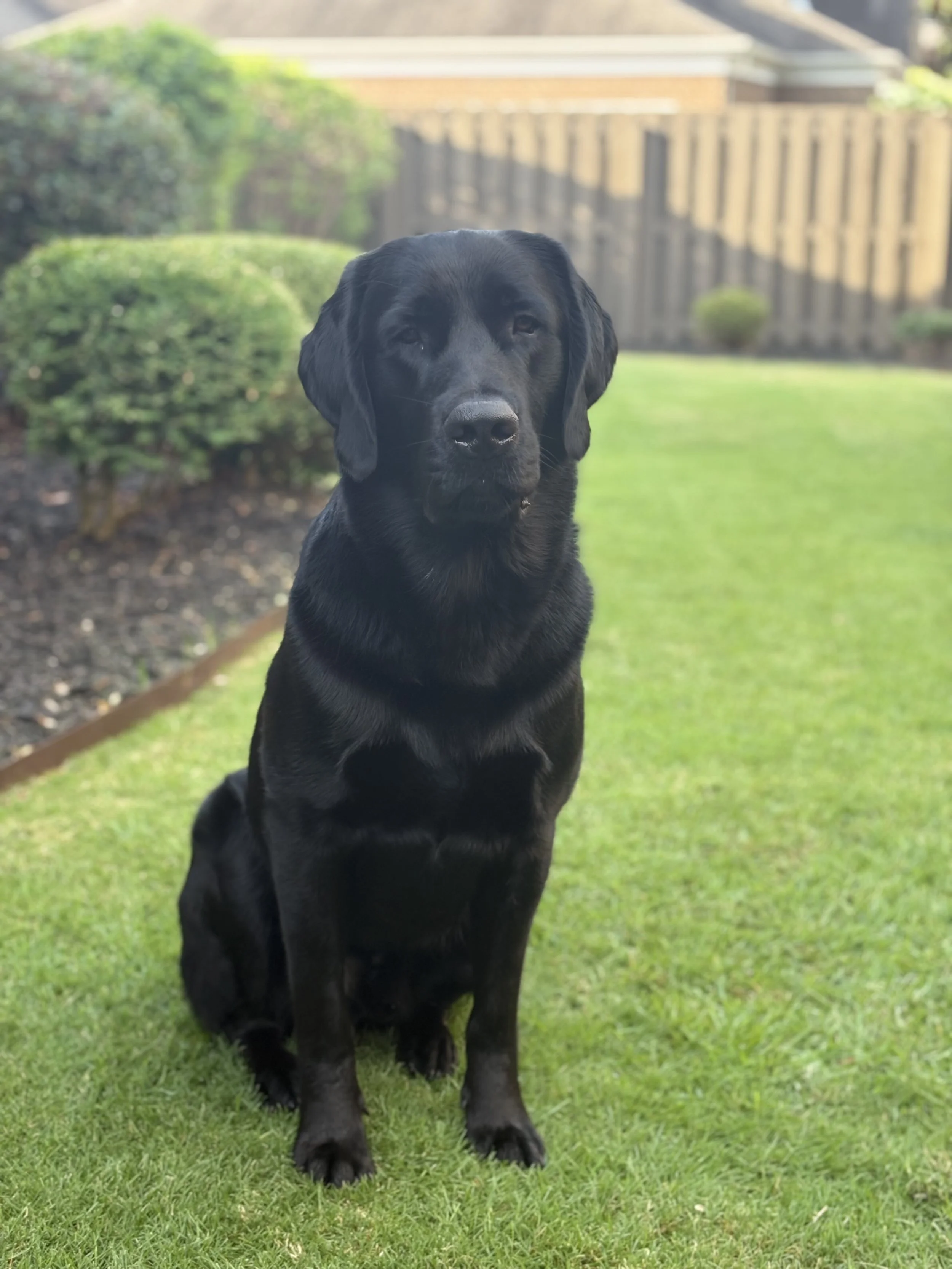Chalkboards and Chew Toys: Why Educators Make Excellent Dog Socializers
When Principal Wendy Pharo brought a facility dog-in-training to Madison Elementary, she wasn’t sure what to expect. Schools are loud, unpredictable, and constantly in motion. But what she discovered was something remarkable: the dog didn’t just adapt—he became part of the heartbeat of the school.
"At first, I wasn’t sure how the dog would handle all the activity," Wendy recalled. "But he adapted quickly. He got used to the noise, the constant movement, and the different types of floors and stairs. He loved being around the students and staff."
Internship Goals: Learning from the Best!
McLeod, “intern”, soaks up wisdom from his mentor Barnie, the school's full-time facility dog extraordinaire.
In fact, the dog thrived. He handled morning announcements, chaotic hallways, fire drills, assemblies, and even the buzzing curiosity of children who couldn’t wait to meet him. Over time, he settled into a routine and became a source of joy and calm for students and teachers alike.
"He was always wagging his tail and so sweet to the kids," Wendy said. "It didn’t matter what time of day it was—he made our school feel more like home."
For students who were anxious or had never been around dogs, the gentle presence of a service dog helped build confidence and trust.
Pawsome First Impressions!
Major proves that the best handshakes come with four paws and a wagging tail.
"After having the dog in classrooms, most students got comfortable and were no longer afraid," Wendy said. "Many teachers commented on how nice it was to have a dog in the school throughout the day. It actually helped create a more positive atmosphere."
Why Socializing a Dog-in-Training at School Is a Win for Everyone
Principal Pharo’s experience reflects what many schools discover when they partner with Service Dogs Alabama to socialize a dog-in-training. Here’s why schools are such an ideal environment—and why school professionals make outstanding volunteers:
It’s a Trial Run Before Full-Time Placement
Socializing a dog gives schools a low-pressure way to explore what having a facility dog might be like. Staff get firsthand experience with integrating a dog into daily routines, and the experience helps set realistic expectations for a future placement.
Study Buddy or Study Buddy?
McLeod demonstrates that every great educator knows the importance of staying current with their reading.
Real-Time Behavior Incentives for Students
Dogs can be used to support classroom goals. Teachers often say things like, “We only get a visit from the dog when the room is quiet and everyone is on task.” These natural incentives support positive behavior, SEL goals, and PBIS strategies.
Less Pressure, More Learning
Because the dog is still in training, there’s no expectation of perfection—just a focus on learning and building confidence together. It’s a chance for staff to practice cues, reinforce training, and learn how to support a working dog.
A Meaningful Addition to Your School Day
School professionals already know how to set routines, provide structure, and nurture growth—all things a young service dog needs. In return, the dog brings a calming presence, a sense of responsibility, and even more teachable moments to the school day.
When You’re the Teacher’s Pet… Literally!
Major's biggest fan creates a mini masterpiece – talk about puppy portrait perfection!
It’s Not Just for Teachers
While teachers often make excellent socializers, this opportunity is open to many roles within the school system. Guidance counselors, librarians, school social workers, administrators, and even central office staff have all successfully socialized service dogs. If your role allows for structure and student interaction, you may be a perfect fit to help a dog-in-training thrive.
Helping the Dog Helps Future Placements Statewide
The time and feedback a school provides during the socialization phase helps Service Dogs Alabama match each dog with the right long-term placement—whether that’s a child, a veteran, or another school.
"Having a facility dog in our school and our home has been a life-changing experience for us," Wendy said. "I’ve learned that service dogs are not just well-trained—they’re smart, focused, and aware of their surroundings in ways that help the people they support."
So if you work in education and have ever thought about volunteering with a service dog organization, consider this: your school might be one of the best training grounds there is. From the bell ringing to the bustling hallways, your environment is filled with the kinds of real-life experiences that help dogs learn to navigate the world with calm and confidence.
Interested in socializing a future service dog?
Contact Service Dogs Alabama to learn how your classroom—or office—can help shape a life-changing companion.
This is what potential looks like – Major is ready to trade his training days for a lifetime of service, and it all starts with educators like you.





